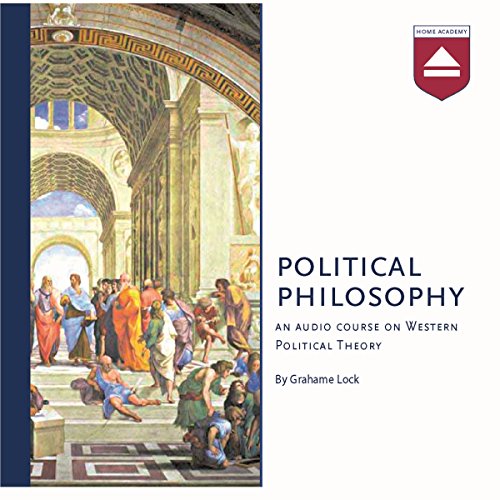This audio course examines the major periods in the history of Western political thought and questions the political and social order. It considers the ways in which thinkers have responded to the particular political problems of their day, and the ways in which they contribute to a broader conversation about human goods and needs, justice, democracy, and the proper relationship of the individual to the state.
Plato, Aristotle, Augustine, Thomas:
It has been said that all philosophy is a footnote to Plato. Ludwig Wittgenstein asked why was Plato so very clever? Or is there another reason for the immense influence of the classical world on all subsequent European thought? What is the effect, in this connection, of St Augustine’s new, Christian doctrine of politics as a necessary evil?
Machiavelli, Hobbes, Locke, Rousseau:
Machiavelli the Florentine is a provocateur of Realreal politik, who argues for the subordination of Christian morality to the effective if unwritten rules of the political game. Thomas Hobbes takes yet another step toward pure realism: man, he says, wants only to survive, to minimiseminimize pain and maximisemaximize pleasure.
Tocqueville, Marx, Freud, the Present Day:
Alexis de Tocqueville visited America in the 19th century and was shocked by its democratic tendencies, which he thought would destroy civilization-as-we-know it – and yet were unstoppable. Marx produced his well-known account of the rise and coming fall of the capitalist class: not so much a moral condemnation as a historical forecast. Was he right? Finally, we look at present-day currents in political philosophy. Are there any new ideas in the world?
Inhoud:
- Chapter 1: Plato – The beginnings: justice and the philosopher kings;
- Chapter 2: Aristotle – Happiness, politics and the telos of mankind;
- Chapter 3: St Augustine – The State as a necessary evil;
- Chapter 4: St Thomas – A rational Christian philosophy;
- Chapter 5: Machiavelli – Behind the scenes of the political game;
- Chapter 6: Thomas Hobbes – Why we need a Leviathan to rule over us;
- Chapter 7: John Locke – Life, liberty and estate;
- Chapter 8: Jean-Jacques Rousseau – The general will: a critique of representative government;
- Chapter 9: Alexis de Tocqueville – America and democracy: an aristocratic point of view;
- Chapter 11: Sigmund Freud – Why the masses love their leaders;
- Chapter 12: The present day – Contractualism, individualism and the dogma of our times.
Chapter 10: Karl Marx – Class struggle and history;
The PDF booklet that accompanies this selection will be automatically added to My Library after the purchase.








Reviews
There are no reviews yet.